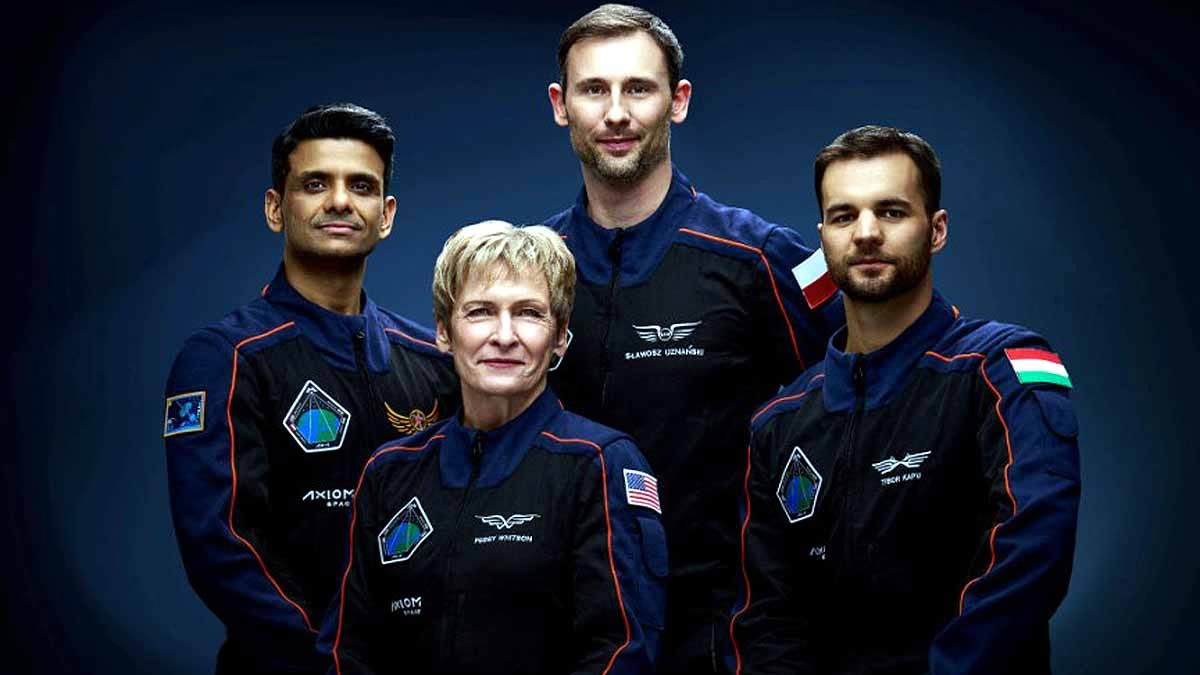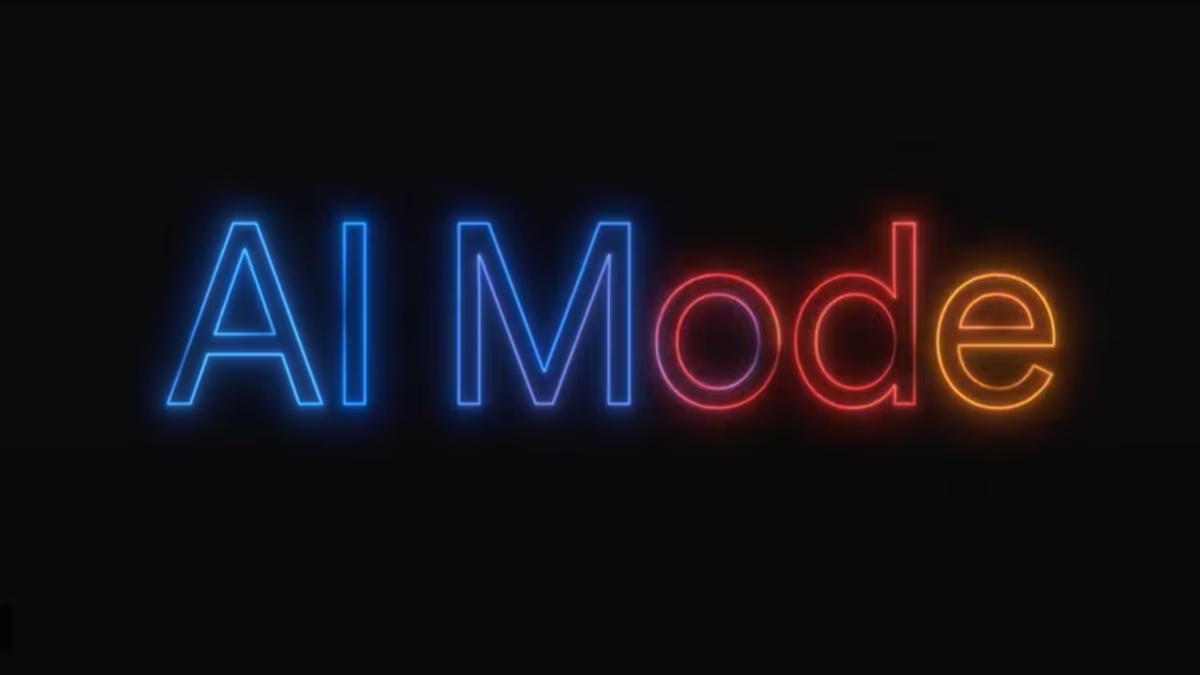Indian astronaut Group Captain Shubhanshu Shukla was set to embark on the Axiom-4 (Ax-4) mission to the International Space Station (ISS) to conduct seven Indian scientific experiments. This mission holds historical significance for India, being the country's first such venture after Rakesh Sharma's mission in 1984.
However, the mission has faced seven delays, with the latest launch date now set for June 25. Frequent postponements have sparked concerns about the safety of Indian experiments, particularly biological samples.
Axiom-4 Mission: The Role of Shubhanshu Shukla
Axiom-4 stands as a private space mission orchestrated by NASA, Axiom Space, and SpaceX. This mission includes a crew of four astronauts...
Read More:
Commander: Peggy Whitson (former NASA astronaut, USA)
Pilot: Shubhanshu Shukla (Indian Air Force pilot, ISRO)
Mission Specialists: Sławosz Uznański-Wiśniewski (Poland) and Tibor Kapu (Hungary)
This 14-day mission involves over 60 scientific experiments, seven of which are distinctly Indian. Shubhanshu Shukla will pioneer as India's first astronaut to reach the ISS. India has invested INR 5.5 billion for this mission, reflecting its ambitious space pursuits.
The 7 Indian Experiments: What Are They?
Shubhanshu Shukla is poised to execute seven experiments on the ISS, crafted by the Indian Space Research Organisation (ISRO) and other Indian institutions. These experiments address microgravity effects on biology, agriculture, and human adaptation, crucial for future space missions and research on Earth.
Read More:
Muscle Loss Study (Institute for Stem Cell Science and Regenerative Medicine)
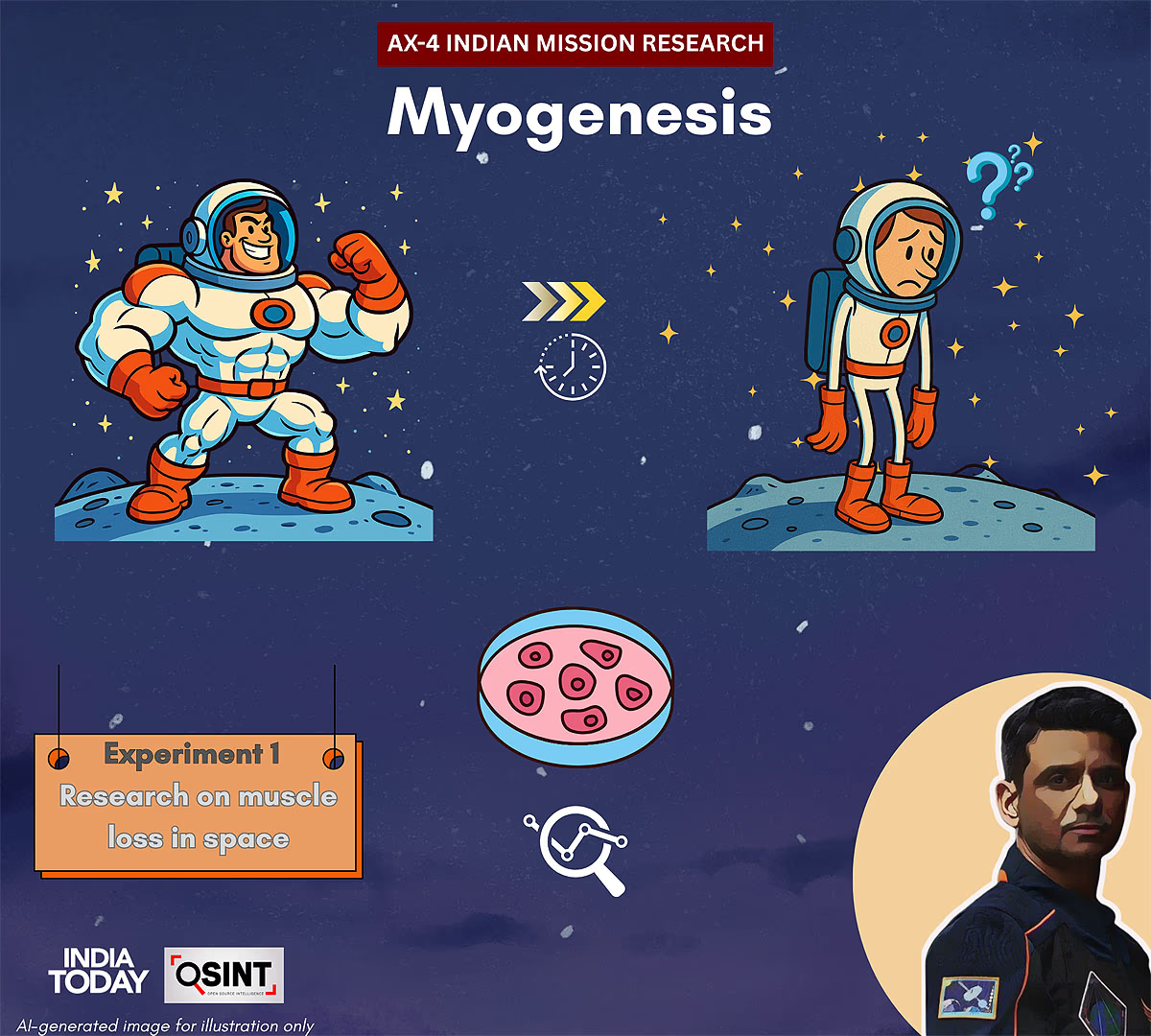
Source: aajtak
Microgravity weakens astronauts' muscles. This study seeks reasons and remedies, potentially aiding missions to Mars and muscle disease treatments on Earth.
Crop Growth (Kerala Agricultural University and Indian Institute of Space Science and Technology)
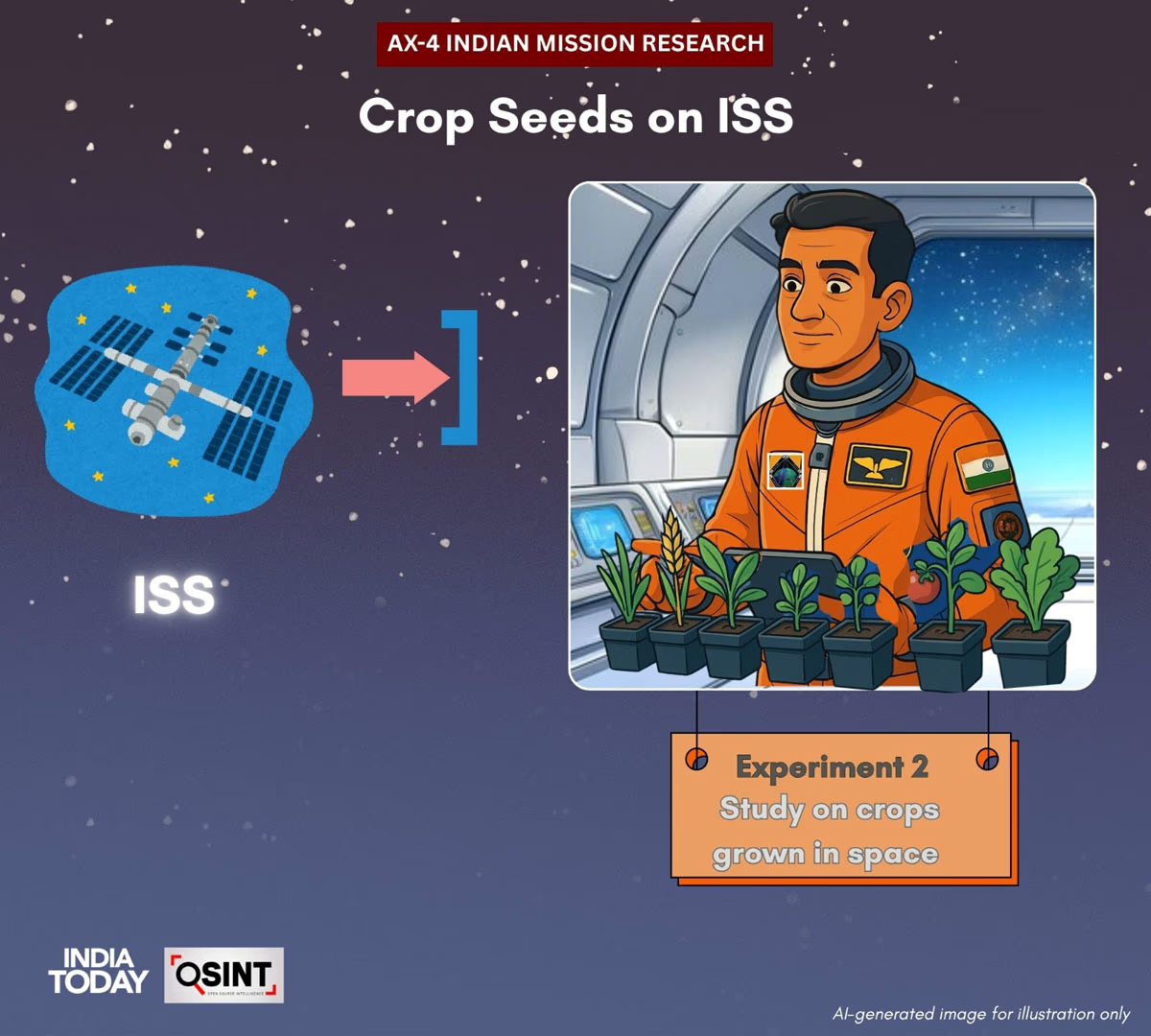
Source: aajtak
Six varieties of crop seeds will be studied in space to observe growth and genetic changes, paving the way for space agriculture.
Seed Germination (University of Agricultural Sciences, Dharwad and IIT Dharwad)
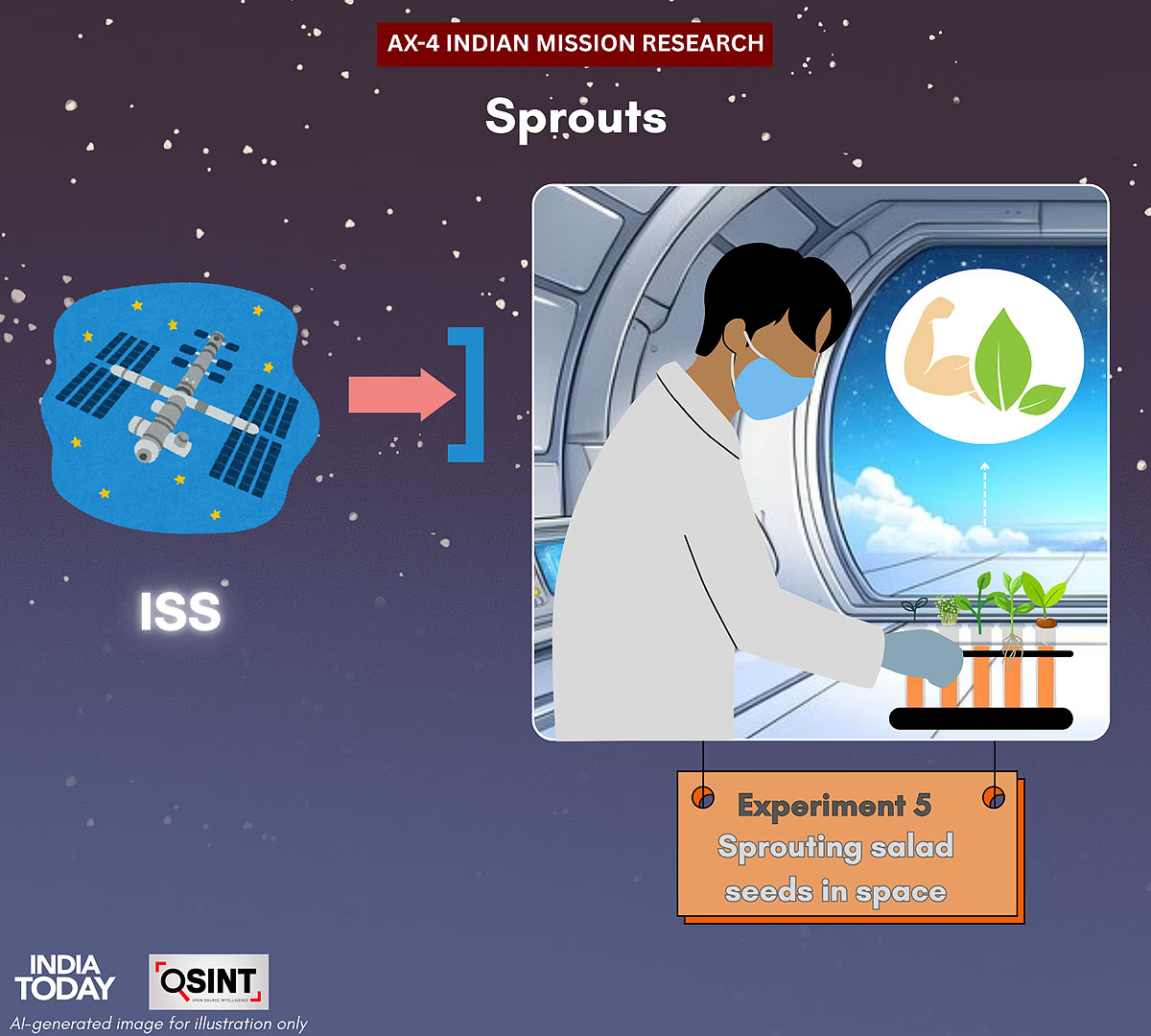
Source: aajtak
This examines seed germination and nourishment alterations. Post-space return, seeds will be grown for generations to analyze genetic and nutritional changes.
Micro-organisms Resilience (Indian Institute of Science)
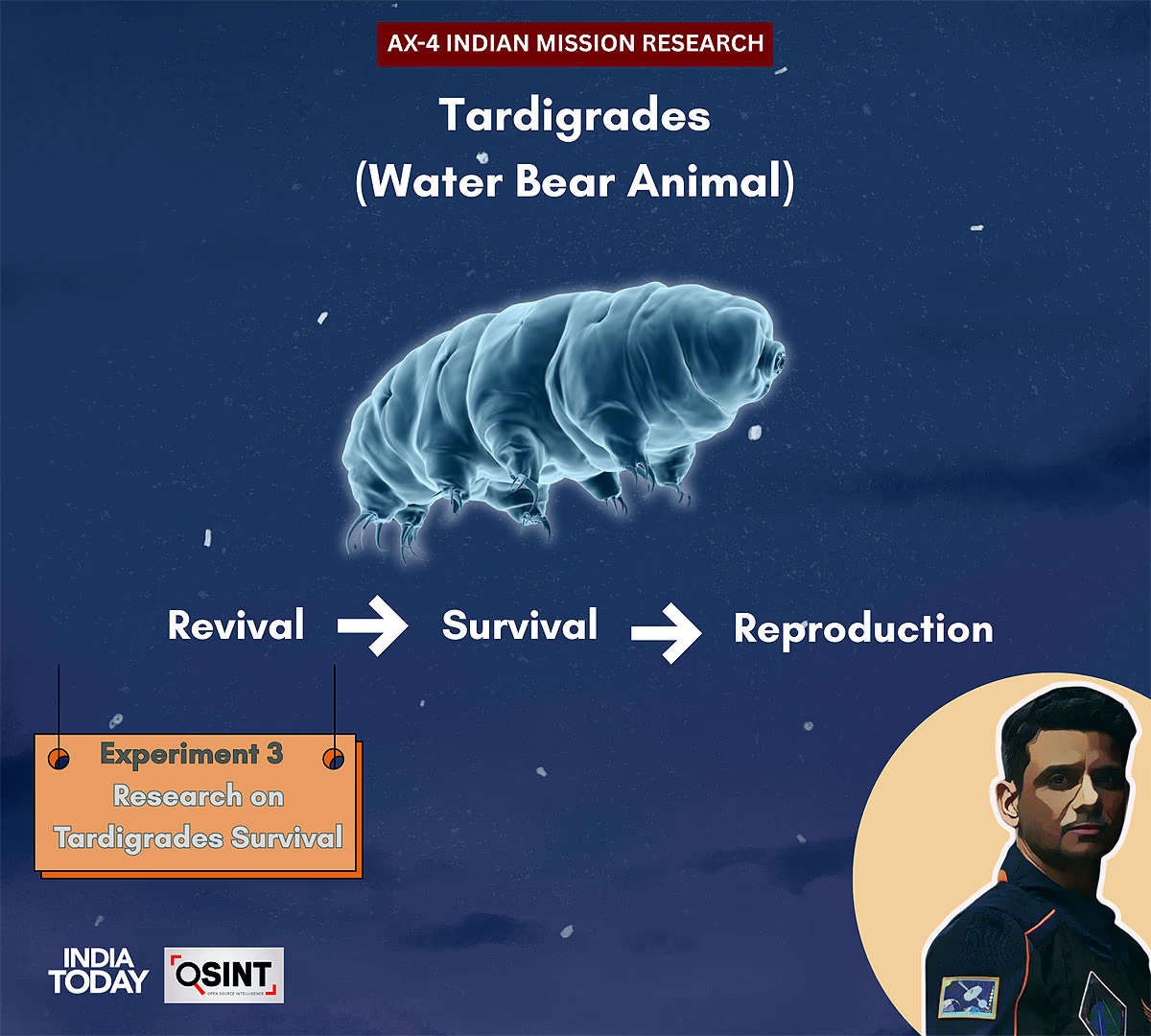
Source: aajtak
The survival capabilities of tardigrades, small creatures enduring extreme conditions, will be examined to enhance understanding of life's resilience in space.
Cognitive Impact of Screens (ISRO)
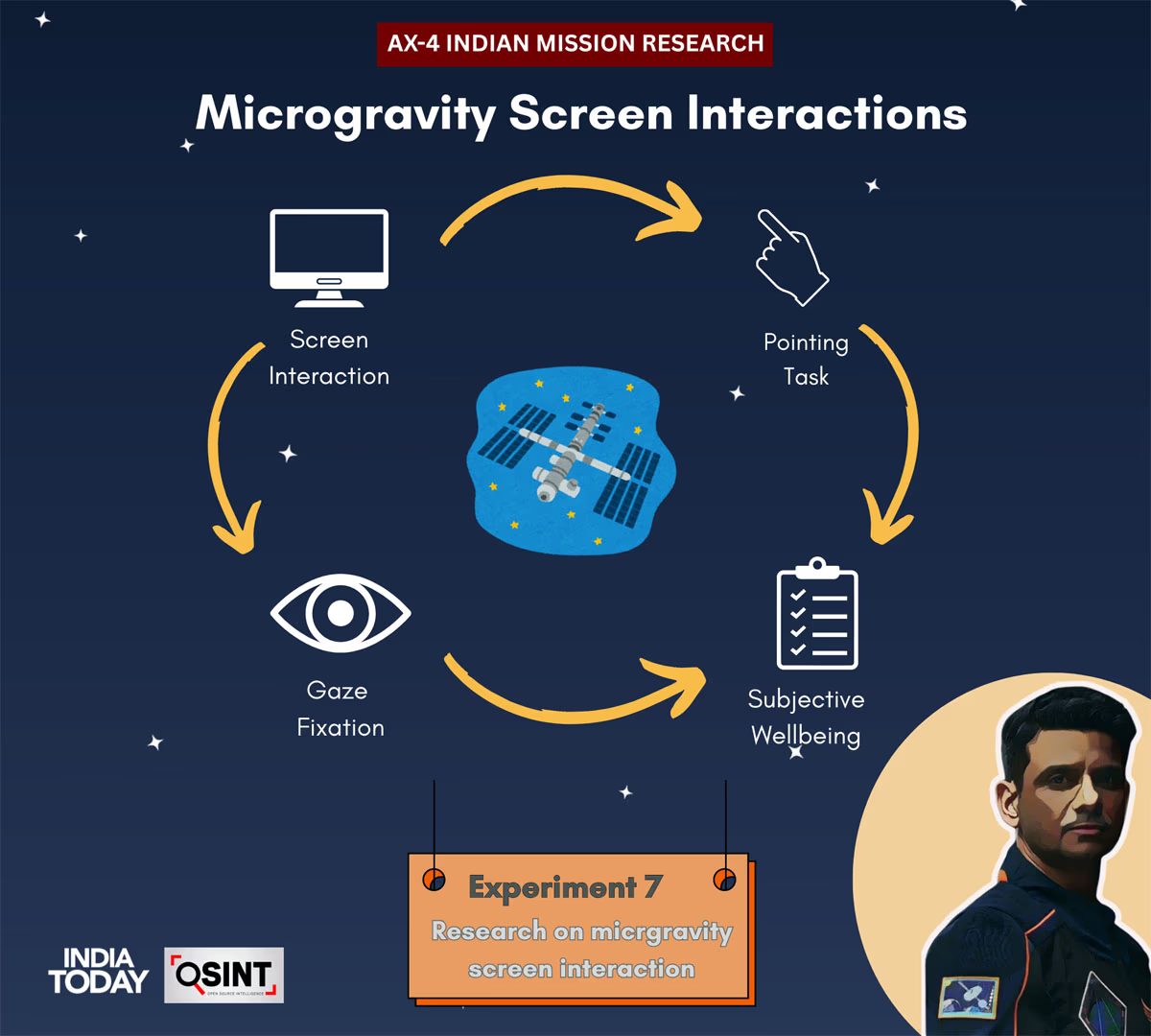
Source: aajtak
This research investigates the effects of computer screen usage in space on eye movement, focus, and mental stress, vital for improving astronauts' mental health on deep-space missions.
Growth of Microalgae (ISRO)
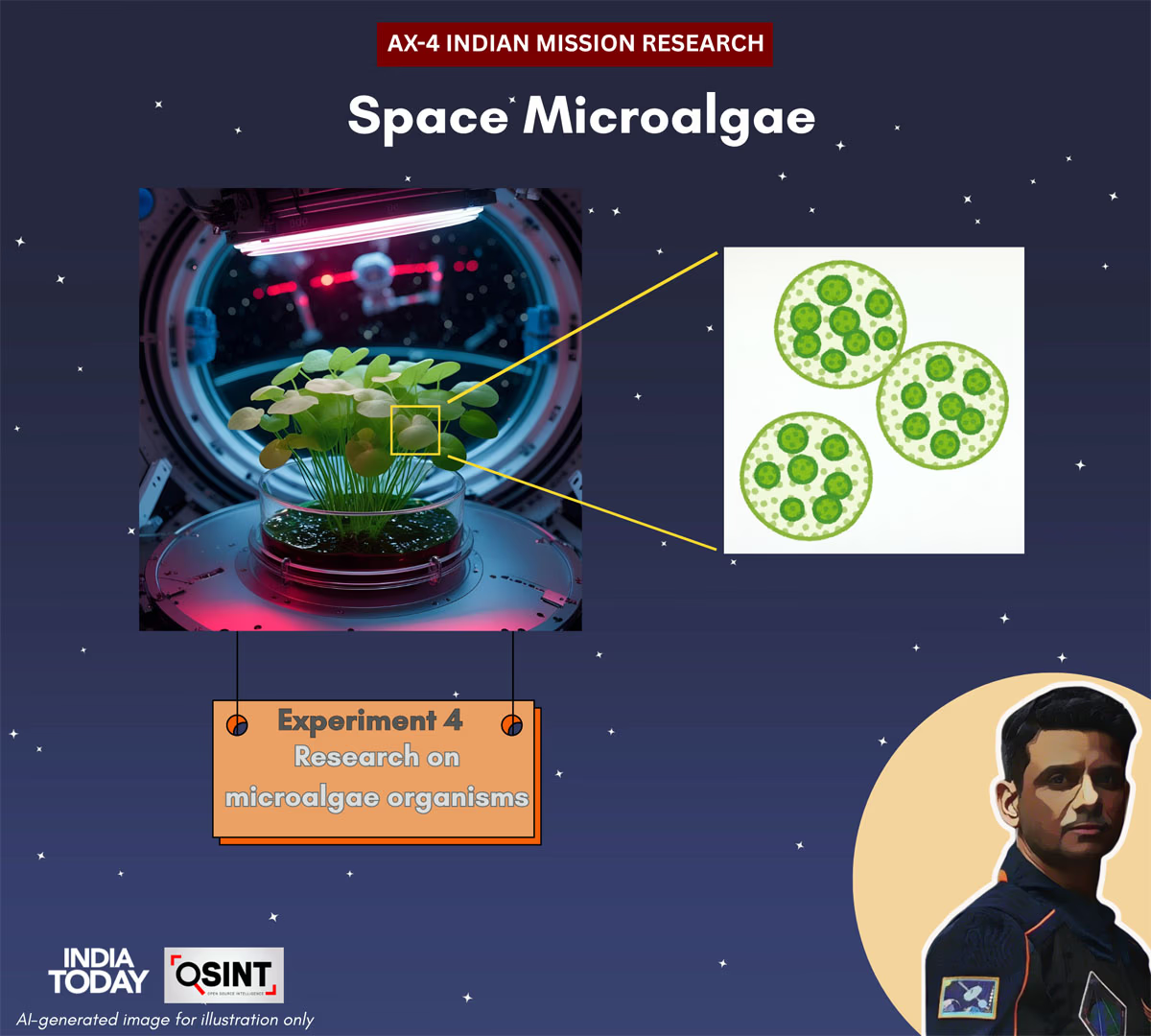
Source: aajtak
The study includes three microalgae types, beneficial for food, fuel, and life-support systems, crucial for self-sufficiency in space.
Cyanobacteria Study (ISRO)
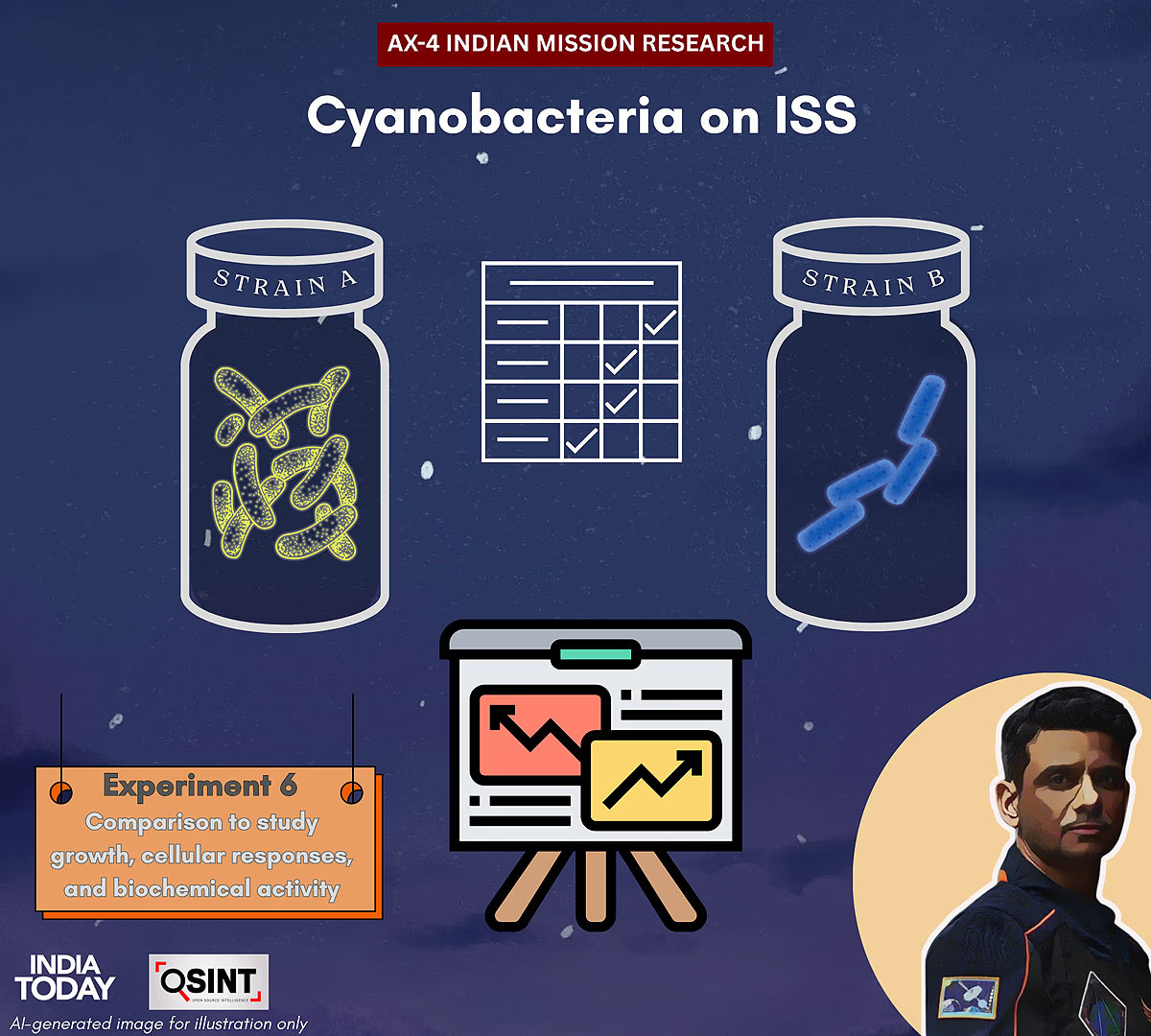
Source: aajtak
The cellular and biochemical behavior of two cyanobacteria types in microgravity will be studied, aiding future space missions in oxygen and food production.
Reasons for Mission Delays
The Axiom-4 mission has faced numerous postponements, initially set for May 29, 2025, but delayed for technical and safety reasons.
May 29 to June 8: Delayed due to a fault in the SpaceX Dragon spacecraft's electrical harness.
June 8 to June 10: Postponed by a LOX leak in the SpaceX Falcon-9 rocket.
June 10 to June 11: Rescheduled due to adverse weather. ISRO had planned a June 11, 5:30 PM IST launch.
June 11 to Indefinite: Found another LOX leak in Falcon-9's booster. ISRO recommended repair and retesting.
June 19 to June 22: Recent repairs in the ISS's Zvezda service module required further safety checks by NASA.
June 22 to Indefinite: NASA again deferred the launch for additional data review of the repairs.
June 25 (Tentative): Potential launch on June 25, pending confirmation by NASA. NASA prioritizes preparedness for new crew members due to the ISS's complex systems.
Read More:
Sample Safety: Are They at Risk?
Repeated delays jeopardize biological samples (e.g., seeds, microalgae, tardigrades) due to potential degradation. Designed for microgravity research, delays could affect their quality.
Biological sample degradation:
Samples like seeds and microalgae from Kerala Agricultural University might lose viability over time. ISRO is refreshing these samples. Tardigrades can withstand harsh environments, yet lengthy Earth storage may impact experimental results.
Experimental precision:
Delays may alter samples’ biological conditions, affecting the reliability of microgravity results.
Logistical challenges:
Refreshing and re-preparing samples entail time and resources, potentially increasing mission costs.
Read More: SPACE X- AX4 MISSION: Shubhanshu Shukla Poised to Carve Space History, Benefits for India Expected, See Details
Safety Measures
ISRO's Readiness:
ISRO is swiftly refreshing biological samples and has specially preserved them to maintain longevity.
NASA and SpaceX's Caution:
Comprehensive checks of ISS and the Falcon-9 rocket by NASA and SpaceX aim to ensure mission safety. LOX leaks and Zvezda module repairs undergo additional tests.
Crew Safety:
The four astronauts are in quarantine in Florida, where their health and safety are rigorously monitored. Axiom Space remarked on the crew's enthusiasm and health.
Launch Window:
The current launch window extends to late June 2025. Missing it would delay the mission until mid-July.
